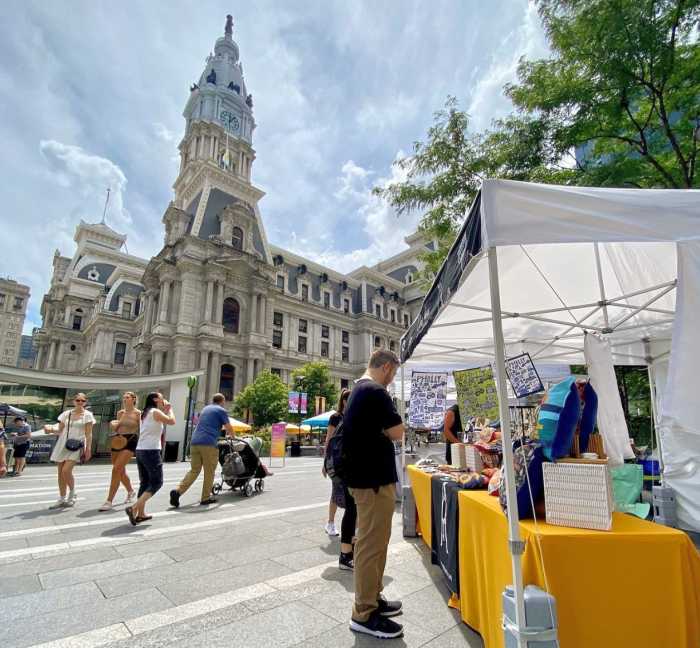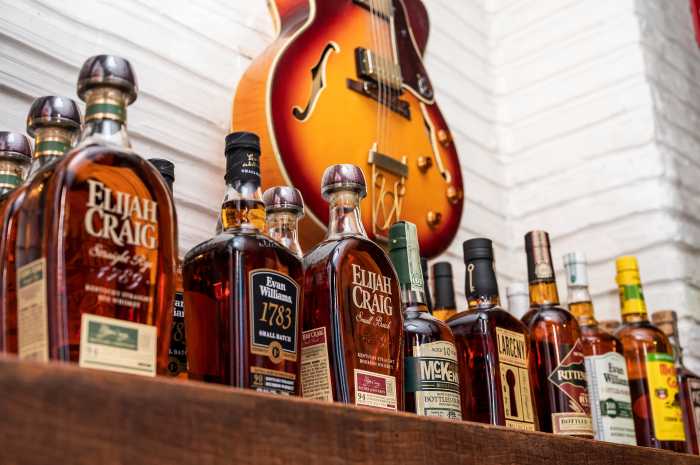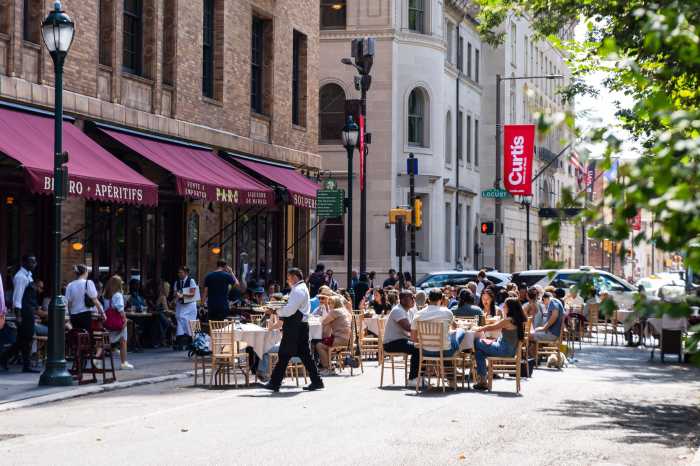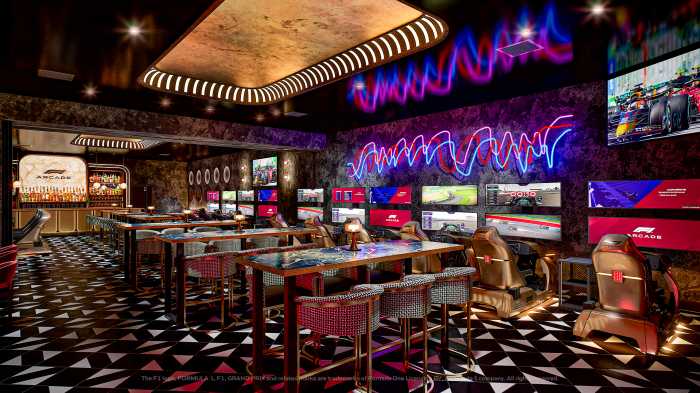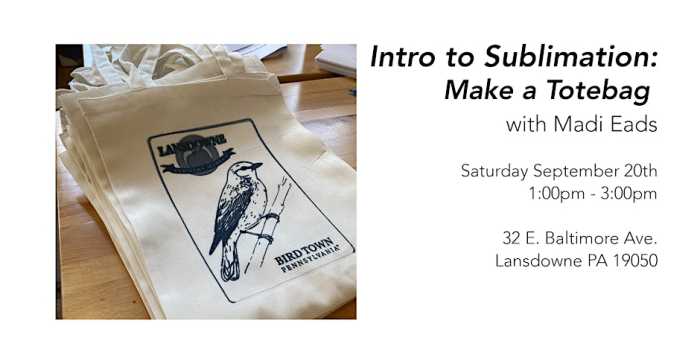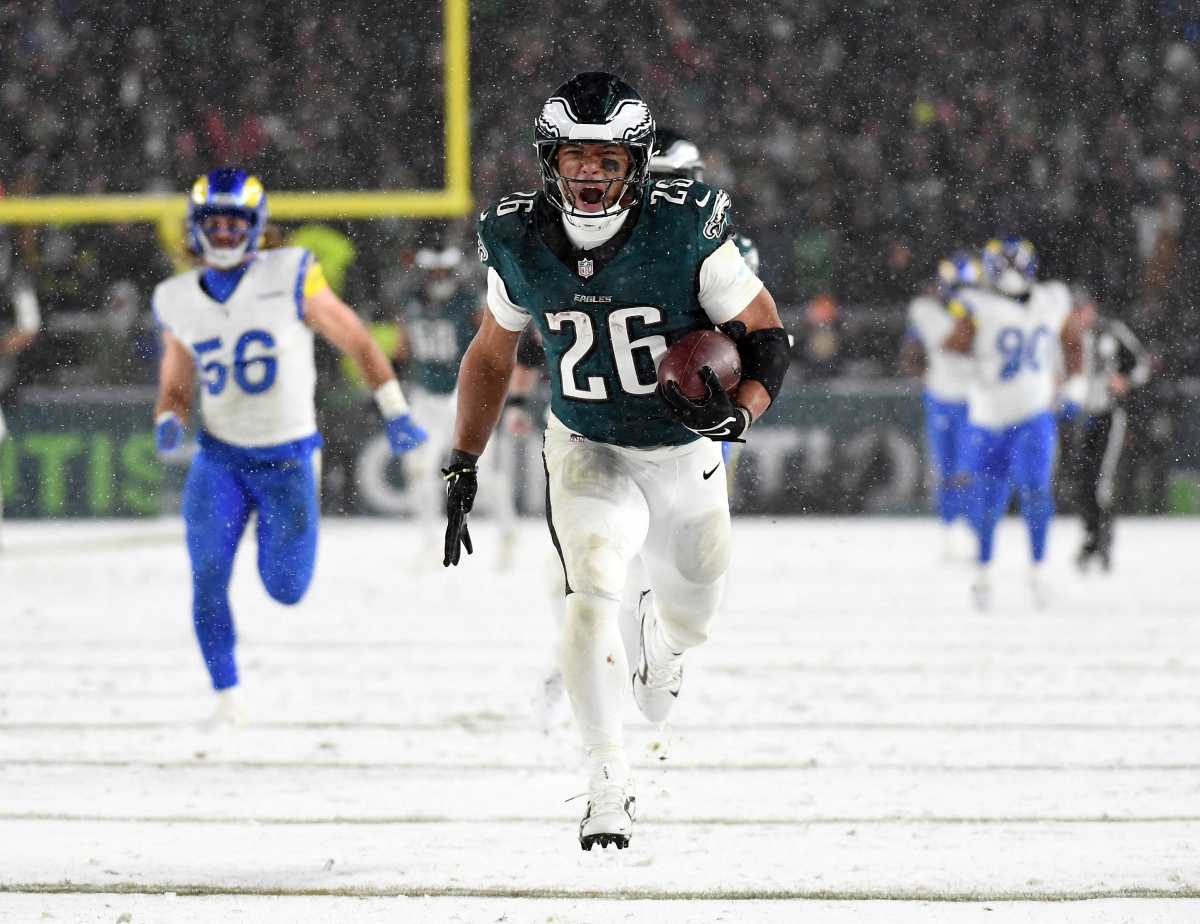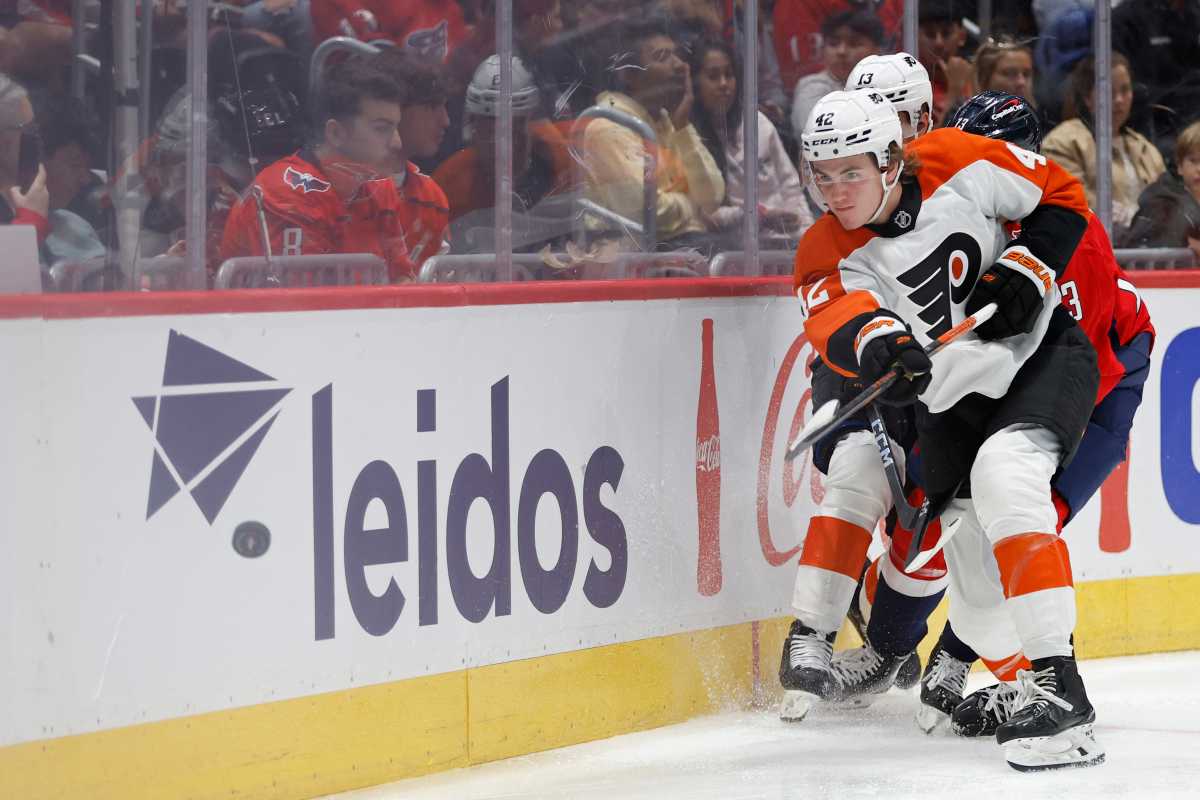City Councilmember Mark Squilla, who represents the site of a proposed 76ers arena on Market Street, is pushing to require the team to fund free SEPTA passes for ticket-holders if benchmarks around mass transit use are not met.
A city-commissioned study released earlier this year found that, to prevent traffic gridlock in Center City, no more than 40% of spectators can drive in private vehicles to the venue. To limit the number of cars, the 76ers have set a goal of encouraging 40% to utilize public transit.
Squilla said Tuesday that the 76ers have already agreed to purchase passes for fans during the arena’s first year. Negotiations are ongoing to include a provision extending that incentive if travel splits fall below that 40% threshold, he added.
“We’re hoping to put that into the terms when we eventually vote on the main bill,” Squilla told reporters during a break in a Council hearing about the planned $1.3 billion arena, known for now as 76 Place at Market East.
A 76ers spokesperson told Metro that the $50 million Community Benefits Agreement – a deal reached between the team and Mayor Cherelle Parker’s administration – includes $3 million that will be used to cover fares for season ticket-holders for the first year.
SEPTA released a study last week indicating that 76 Place construction would cost the authority between $22 and $50 million. Providing extra Regional Rail trains, staffing at Jefferson Station and other services to handle the crowds would require an additional $20 to $25 million a year, according to the report.
“The problem isn’t paying for the passes, it’s paying to upend SEPTA to suit Josh Harris, which will cost $25 million a year,” said the No Arena Coalition, a group of organizations that has been coordinating opposition to the arena, in a statement referring to the 76ers’ managing partner.
“The developers were crystal clear: They’re not paying for it, we are through higher fares and slashed service,” the statement continued. “Throwing ‘free’ passes for a season won’t fix that.”
News of the transit pass incentive – which had been more informally discussed previously – came during a Council meeting about 76 Place. Hours of hearings have been held over the past two weeks, as lawmakers consider whether to approve a legislative package that would authorize the project to move forward.
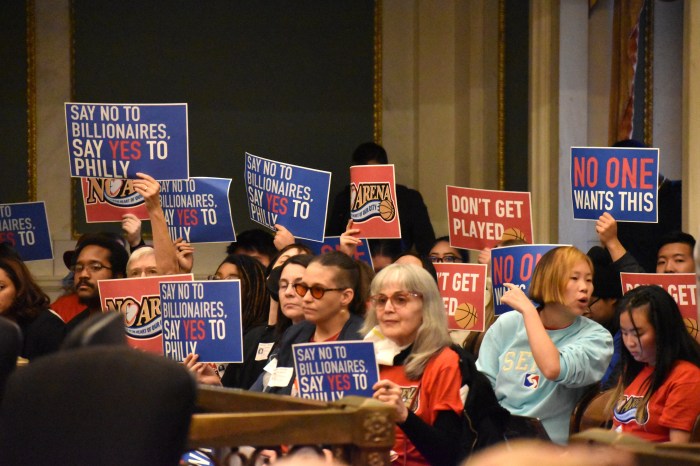
On Tuesday, Council advanced bills to remove the arena parcel from a Tax Increment Financing District created in 2015 for the development of The Gallery into the Fashion District mall and a proposal creating a 76 Place special services district.
Both measures are mainly procedural and will be irrelevant unless lawmakers pass broader arena legislation. Three of the 13 Council members in attendance – Jamie Gauthier, Rue Landau and Kendra Brooks – opposed the motion to move the bills.
Developers have proposed replacing a section of the Fashion District mall, between 10th and 11th streets, with the arena, which would sit on top of Jefferson Station.
The 76ers, through the CBA, would fund the special services district through a payment of around $14 million over six years of construction and three decades of operation.
Seven board members, appointed by the mayor and approved by Council, would craft a plan to spend the money. The legislation stipulates that at least four members be district residents or local business owners, Squilla said.
He added that the district would also be charged with developing a traffic management plan, to be vetted by the City Controller’s Office.
Squilla also amended the district Tuesday, extending the zone south from Pine to South Street. It would stretch north to Spring Garden Street and cover the area between Broad and 8th streets.
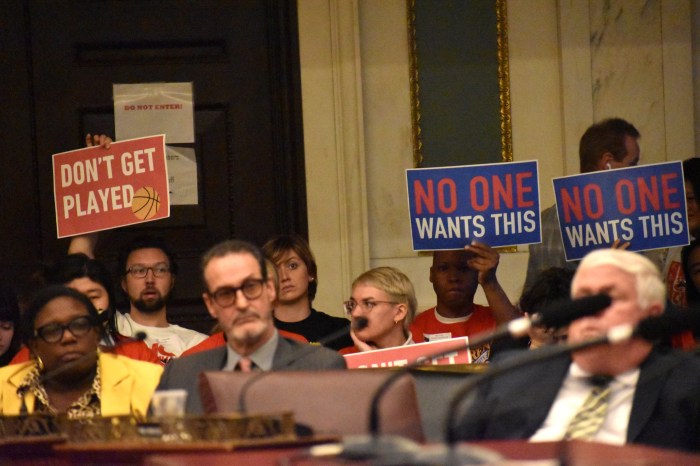
Hearings on the arena are set to conclude next week, with a public comment session Monday night, followed by another meeting Tuesday, Dec. 3. If the legislative package advances, a final vote could come as early as Dec. 12.
Harris Blitzer Sports & Entertainment, the 76ers’ owner, has said Council needs to act before the end of the year in order to open the 18,500-seat arena in time for the 2031-32 NBA season.
“I’m not sure,” Squilla said Tuesday when asked if a vote would be held in December. “It depends on if we have an agreement or not. We’ll find out, so stay tuned.”
Ahead of the hearing, Black Philly for Chinatown, a newly formed group fighting the project, spoke outside City Hall.
Race has been a factor in the 76 Place debate. Proponents have argued the project would be an economic boon for Black workers, while Chinatown activists have said that opportunity would come at the expense of Philadelphia’s most integral and historic Asian American neighborhood.
Among those who have backed the arena are Black Clergy of Philadelphia and Vicinity, the African American Chamber of Commerce and the local chapter of the NAACP. Other leaders, including some affiliated with POWER Interfaith, have come out against the project
“Financially, this jawn doesn’t make any sense,” West Philadelphia state Rep. Rick Krajewski said at the Black Philly for Chinatown event. “We’re giving away millions of tax dollars to billionaires for their billion-dollar project for a CBA that will trickle down a couple million dollars a year.”
Councilmember Brooks, of the Working Families Party, argued that lawmakers should be more focused on crumbling school buildings and the ramifications of a second Trump presidency.
“I’m hearing a lot of promises, but as a Black person who’s spent decades fighting for our communities, I know better than to trust the promises of billionaires,” Brooks said. “This arena is a bad deal. It’s a bad deal for Black folks. It’s a bad deal for working families. And it’s a bad deal for Philadelphia as a whole.”




